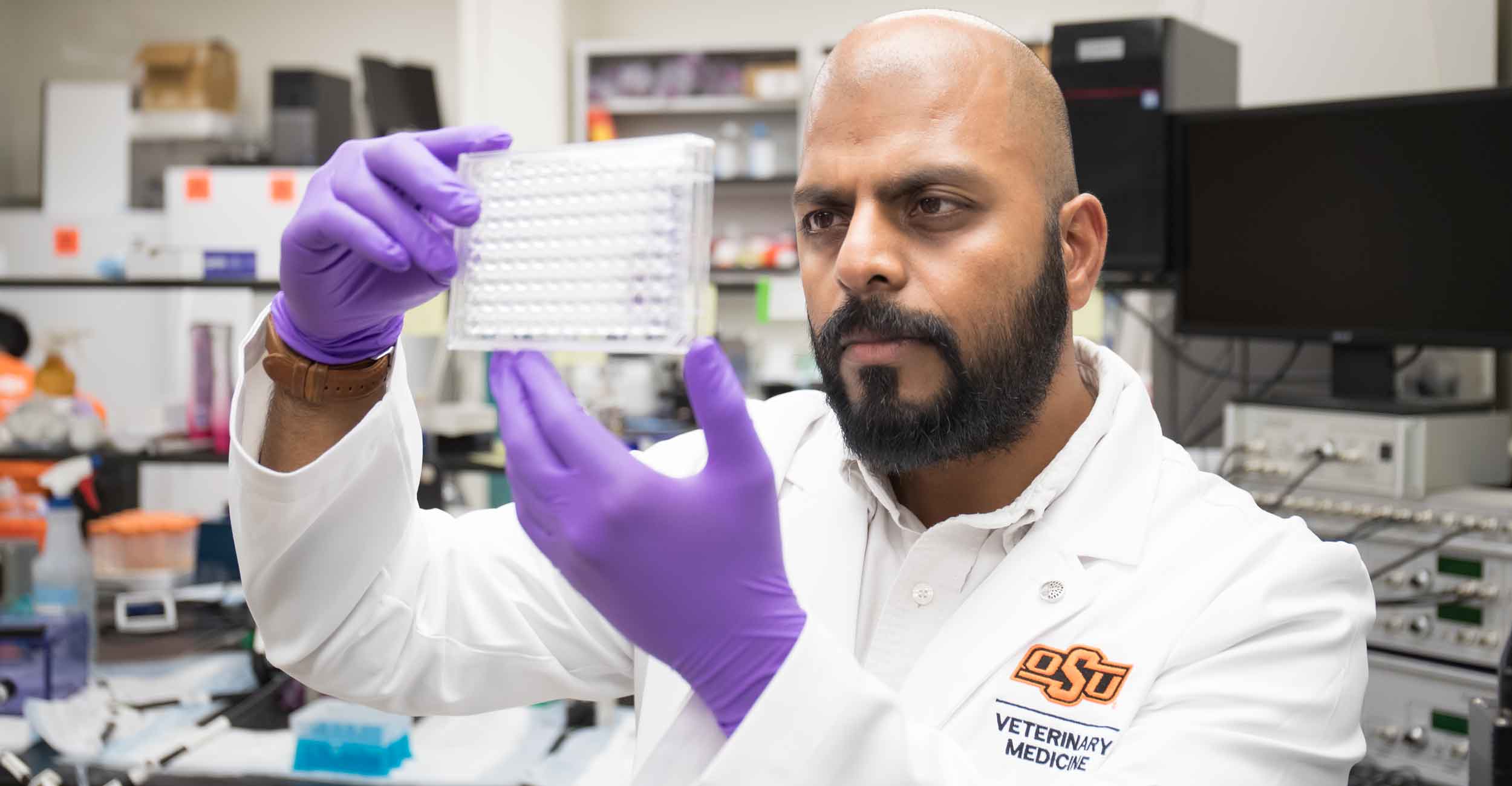
Subramanian receives 2025 President’s Fellows Faculty Research Award
Thursday, March 27, 2025
Media Contact: Sydney Trainor | Communications and Media Relations Specialist | 405-744-9782 | sydney.trainor@okstate.edu
High blood pressure lurks as a leading lethal trigger for heart disease and stroke.
And for those struggling with obesity, that risk skyrockets — but scientists are still unraveling the mysterious connection between them.
Seeking to find that connection, Dr. Madhan Subramanian — associate professor of physiological sciences in the Oklahoma State University College of Veterinary Medicine — was selected as one of three recipients of the 2025 President’s Fellows Faculty Research Award.
“Receiving the President’s Fellows Faculty Research Award is both an incredible honor and a significant milestone in my research career,” Subramanian said. “As a basic science researcher, my work has focused on understanding the brain mechanisms underlying obesity-related hypertension. This award has allowed me to take that knowledge a step further, advancing toward clinical applications that could improve therapeutic options for treating or reducing cardiovascular risk in obese patients.
“Awards like this are invaluable, as they provide opportunities to explore new ideas, refine methodologies, and bridge the gap between basic science and real-world applications.”
Subramanian’s research is set to study how microscopic particles — called extracellular vesicles — released from fat tissue influence the brain’s blood pressure regulation center in obesity. His team will also study whether differences in the microscopic particle can predict hypertension and identify potential molecular targets for therapeutic intervention.
Recently, research in obese mice demonstrated a key antioxidant protein — Nrf2 — significantly decreased in the brainstem region that regulates blood pressure. Using a special device, Subramanian’s team measured the blood pressure in these obese animals and confirmed reduced Nrf2 in the brainstem contributed to increased blood pressure in these animals. By increasing the amount of Nrf2 in the brainstem, they reversed hypertension in obese animals.
However, the molecular mechanisms involved behind this phenomenon are still unclear. Understanding how EVs contribute to hypertension in obesity could open new doors for innovative treatments.
Dr. Jerry Ritchey, CVM interim dean, said Subramanian is a brilliant young scientist and a champion for One Health research.
“While many people think of veterinarians as just working with animals, Dr. Subramanian’s work exemplifies the One Health approach — recognizing the deep connections between human and animal health,” Ritchey said. “His research on the links between obesity, brain function and cardiovascular disease has far-reaching implications, particularly for human health. He’s on fire right now, and we couldn’t be more excited or proud of his accomplishments.
Facilitated by OSU, this local grant program supports important and impactful faculty research. It’s a one-time $20,000 award to be spent on the project with updates given to the President’s Fellows Organization through 2026.
